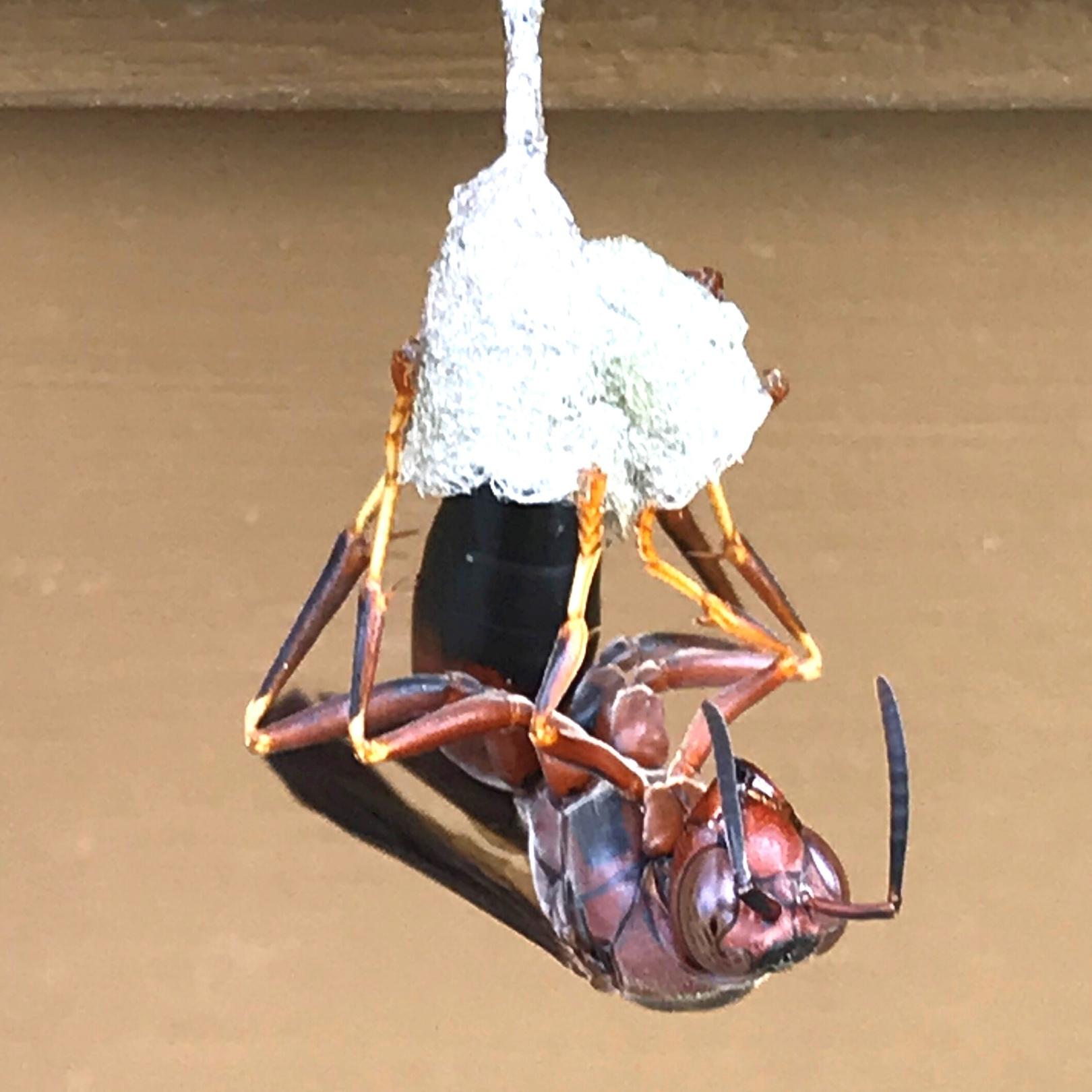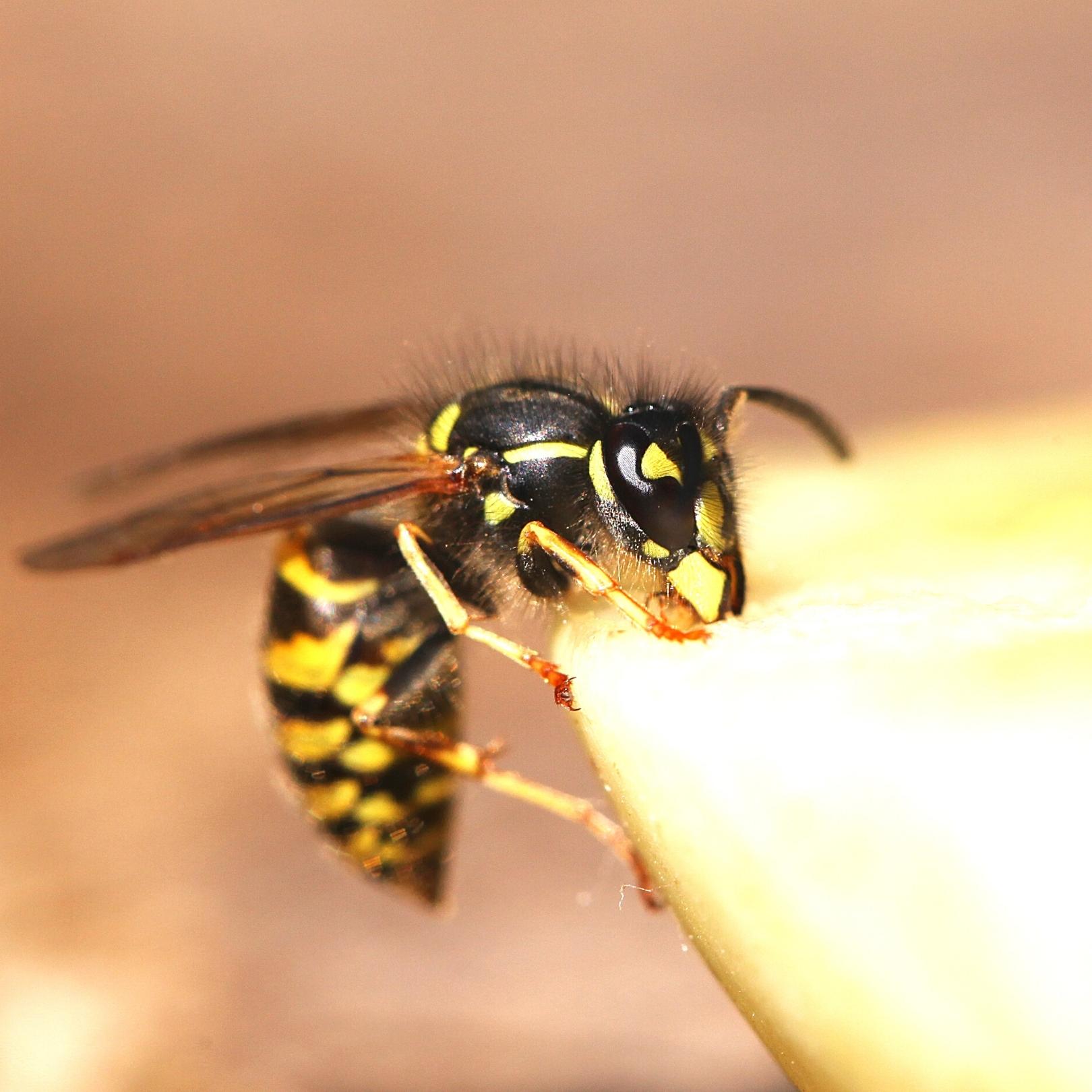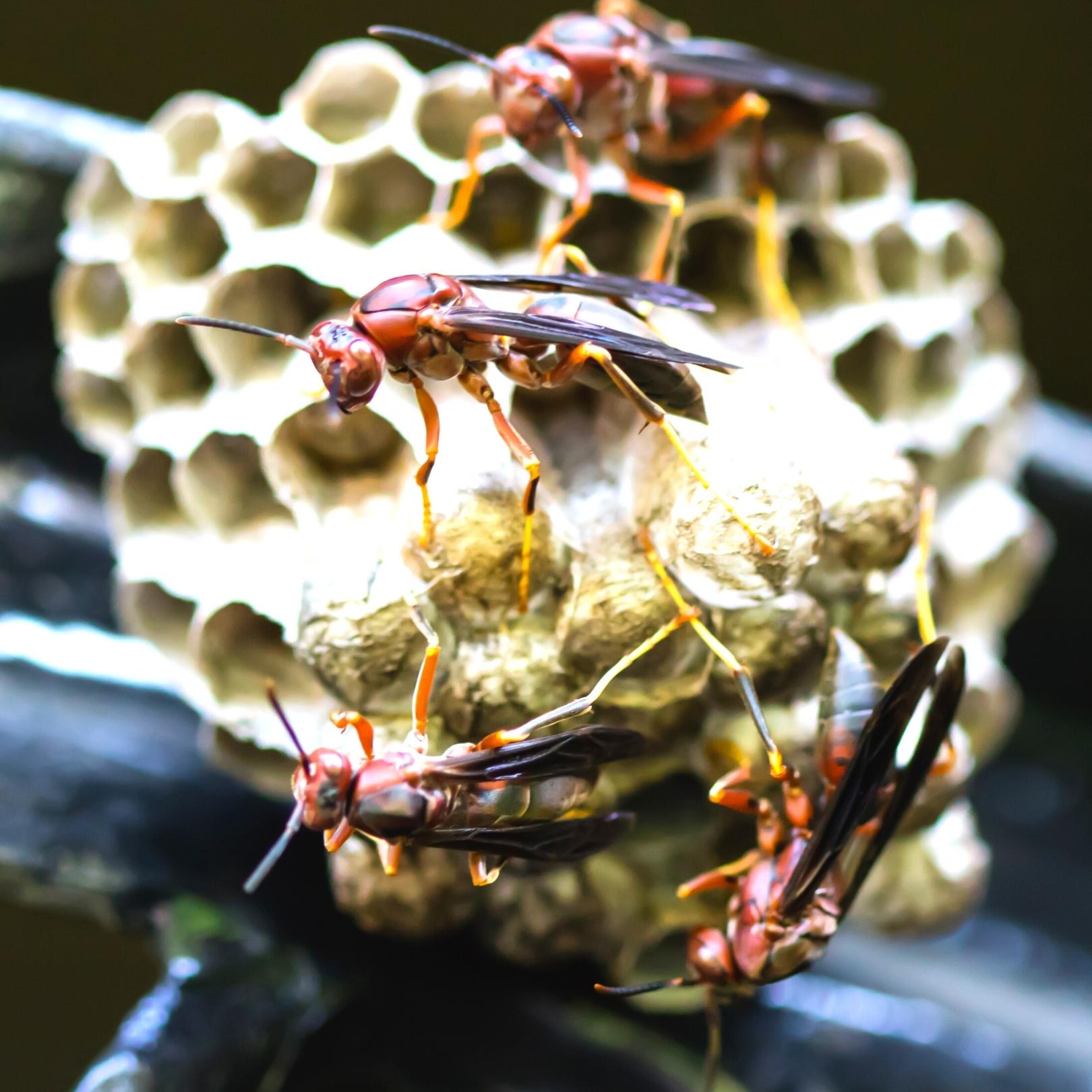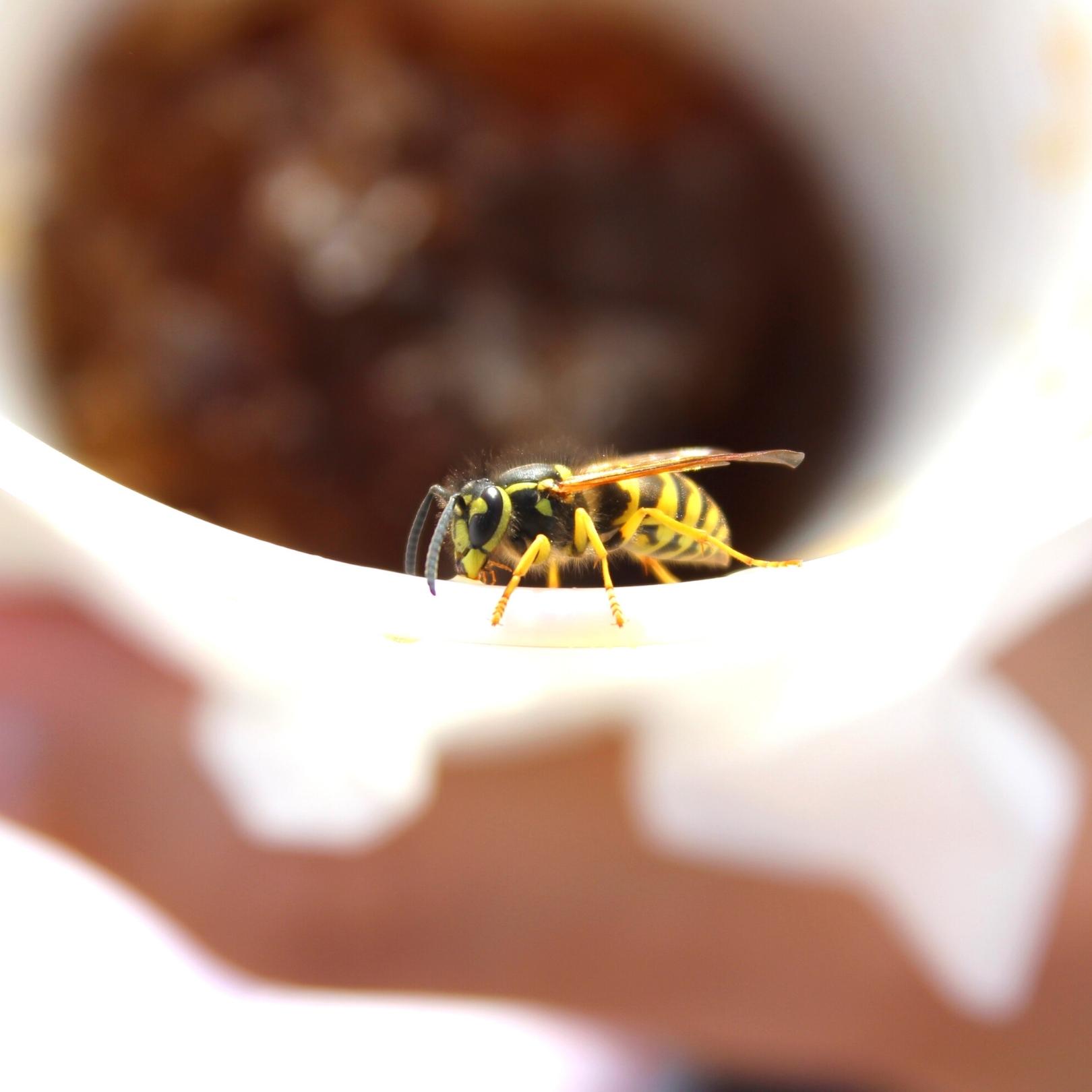Blog
The Insect We Love to Hate

by Hunter Boothe, former Environmental Interpretation Intern
As a society, we respect and sometimes adore fuzzy and rotund bees because we know they’re important for pollination. So where is this same admiration for slick, colorful wasps?
The first words that appear in your head when you think of wasps are most likely unpleasant—angry, annoying, dangerous, sting.
Why is that? Why do humans dislike a creature that does so much for us?
Truthfully, wasps can be aggressive and territorial, but they typically do not attack unless provoked. We love to hate them, but these insects provide key roles in our ecosystems and may have more in common with us than we think.

Imagine being a yellowjacket. You spend all day collecting food for your babies (larvae), hunting other insects, and carrying them back to the nest. After all that hunting, you really need an energy boost. You see a refreshing glass of sweet tea left on a table outside. You start to approach this magnificent gift but are swatted away by a gigantic hand! This would infuriate you too, right?
Wasps love a good picnic, with a particular taste for sweets. For us, this tends to cause an event-ruining atmosphere. What we may not realize is these wasps are providing for their families in the easiest way they can, which just so happens to be our readily available food. By providing sustenance for the wasp, your sweet tea is aiding in some key services to humans, like pest control and pollination.

The most common wasps are social wasps. Like their relatives, the honeybees, they live in colonies with a queen, hundreds to thousands of sterile female workers, and defenseless mating males. They build structurally sound paper mâché nests made from wood fibers and their own saliva.
Like us, wasps are big fans of gardens—just not for the same reasons. Unlike bees, wasps act as a natural pest control. They are predators and play a vital ecological role helping to maintain our plants by preying on the caterpillars, spiders, grasshoppers, and other crop-destroying insects. Ironically, grown wasps do not consume their prey, but rather feed them to their larvae.

Adult wasps feed on nutrients from sugars like nectar, honeydew, and sap, as well as your sweet tea. This sweet tooth comes with a light helping of pollination. We typically don’t think of them as pollinators, and they’re not nearly as effective as bees, but with the amount of time they spend on sweet, nectary flowers, it’s bound to happen.
So, while we bask in the beauty of the butterfly, and are grateful for the work of the bees, the fascinating behavior and ecological contributions made by the wasps often go unnoticed and underappreciated. But like us, wasps love a well-tended garden and some sweet tea.